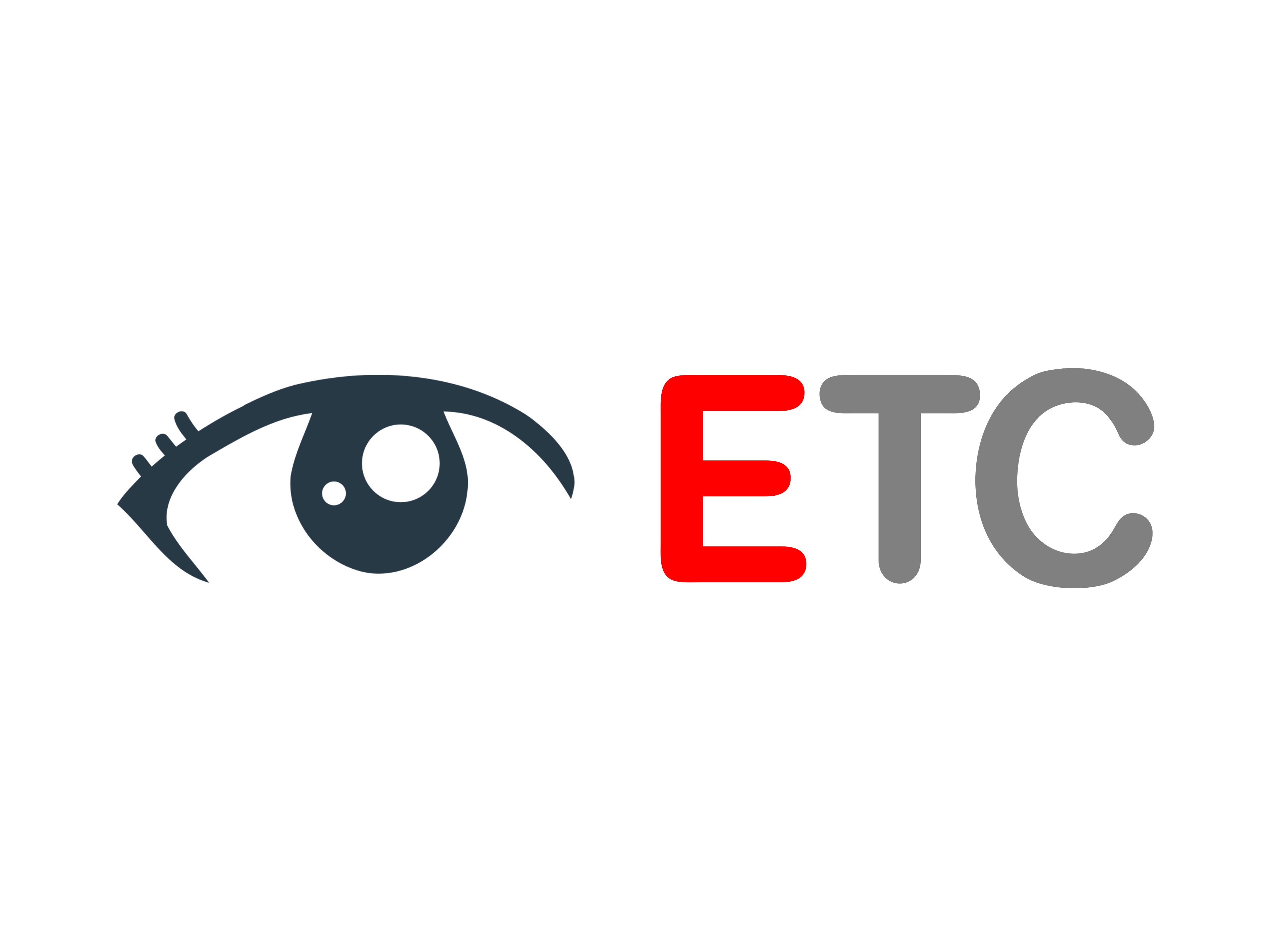Personality Type: Optimistic Achiever
The “Optimistic Achiever” is characterized by an unwavering belief in one’s abilities, a positive outlook on life, and an innate drive to set and attain ambitious goals. Individuals with this personality type exude confidence, maintain resilience in the face of challenges, and inspire those around them with optimism.
They approach life with a “can-do” attitude, viewing obstacles as opportunities for growth and learning. Optimistic Achievers often excel in leadership roles, entrepreneurial ventures, and creative endeavors, bringing their infectious positivity and self-assuredness to everything they pursue.
Core Competencies:
FIT Score: 8.4
Emotional Intelligence (EQ)
High – Optimistic Achievers are generally good at understanding and managing their own emotions and those of others. Their optimism often contributes to a heightened sense of emotional intelligence.
Stress Tolerance
Moderate to High – Their optimism helps them cope with stress, although their high-achieving nature might make them more susceptible.
Team Compatibility
High – Optimistic Achievers often energize teams and can be good team players, contributing positively to group dynamics.
Communication Skills
High – Effective communication often accompanies a goal-oriented mindset, making them articulate and persuasive speakers.
Conflict Resolution
Moderate to High – They likely aim for a constructive resolution to keep the team or project on track, using their optimism to see the positive aspects of resolving conflicts.
Motivation
High – Optimistic Achievers are generally highly motivated to reach their goals and often go the extra mile to achieve them.
Adaptability
Moderate to High – Their optimism often helps them adapt to change more easily than others, viewing new situations as opportunities rather than setbacks.
Empathy
Moderate – While focused on goals, they usually understand the importance of empathy in team settings and can be sensitive to the needs of others.
Resilience
High – Optimistic Achievers tend to bounce back quickly from setbacks, using them as learning experiences for future challenges.
Self-Regulation
Moderate to High – Their focus on achievement often requires a degree of self-discipline and the ability to delay gratification for long-term success.
Optimism/Pessimism
High – Naturally, they would score high on optimism, viewing the glass as half full rather than half empty.
Work-Life Balance
Moderate – Their focus on achievement might challenge work-life balance, as they can be prone to overcommitting themselves.
Ambition
High – Achieving goals is a priority for them, and they are often willing to take on challenges to advance in their careers or personal lives.
Interpersonal Skills
Moderate to High – Good interpersonal skills are generally crucial for achieving team-based goals, and they often have the social skills needed to navigate complex group dynamics.
Honesty and Integrity: 9/10
Optimistic Achievers are known for their strong ethical compass. They prioritize honesty and integrity in all their interactions, making them reliable and trustworthy individuals. Their commitment to these values is often unwavering, even when faced with challenging situations.
Life Balance
Strengths:
-
Positivity: Optimistic Achievers are known for their positive outlook on life. They tend to see opportunities in challenges and approach situations with a can-do attitude, which can be infectious and uplifting for others.
-
Self-Confidence: They have a strong sense of self-belief and self-efficacy. This confidence often drives them to set ambitious goals and work diligently to achieve them.
-
Resilience: Optimistic Achievers tend to bounce back quickly from setbacks. They view failures as learning experiences and are not easily discouraged by obstacles.
-
Motivation: They are highly motivated individuals driven to achieve their goals. They set high standards for themselves and are willing to try to meet them.
-
Leadership: Their optimism and self-confidence make them influential leaders. They inspire and motivate others to work toward common goals.
-
Creativity: Optimistic Achievers often have a creative and innovative mindset. They are open to new ideas and solutions, making them adaptable.
-
Social Skills: They are typically good communicators and can build positive relationships with others. Their optimism and enthusiasm make them enjoyable to be around.
Weaknesses:
-
Overoptimism: Optimistic Achievers may be overly optimistic sometimes, leading to unrealistic expectations. This can result in disappointment when things go differently than planned.
-
Impulsivity: Their enthusiasm and desire for achievement may lead to impulsive decision-making. They may only sometimes thoroughly consider the potential risks or consequences.
-
Risk of Burnout: Their drive to achieve can sometimes lead to burnout if they push themselves too hard and neglect self-care.
-
Difficulty Handling Criticism: Optimistic Achievers may struggle with criticism or negative feedback, which challenges their positive self-image.
-
Underestimating Challenges: They might underestimate the complexity of specific challenges, leading to potential setbacks when encountering unexpected difficulties.
-
Overcommitment: Their desire to take on numerous projects or responsibilities can lead to overcommitment, affecting their ability to manage all their commitments effectively.
-
Impatience: Optimistic Achievers may become impatient when results don’t materialize as quickly as they’d like, potentially leading to frustration.
Jobs & Action Plan
Job profiles that are well-suited for Optimistic Achiever:
Project Management, Entrepreneurship, Leadership
-
Sales Manager: Leading sales teams and driving revenue growth.
-
Entrepreneur: Starting and managing their businesses.
-
Project Manager: Overseeing project execution and delivery.
-
Leadership Coach: Providing guidance and coaching to aspiring leaders.
-
Marketing Director: Managing marketing strategies and campaigns.
-
Public Relations Specialist: Managing an organization’s public image and relationships.
-
Nonprofit Director: Leading nonprofit organizations and achieving their missions.
-
HR Manager: Managing human resources and fostering a positive workplace culture.
-
Financial Advisor: Providing financial planning and investment advice.
-
Event Planner: Organizing and coordinating events and gatherings.
Incompatible Jobs for Optimistic Achievers:
-
Tax Auditor: The meticulous and sometimes confrontational nature of auditing might need to align with their optimistic outlook.
-
Debt Collector: Pursuing individuals for unpaid debts could conflict with their cheerful and empathetic disposition.
-
Customer Complaints Handler: Constantly addressing customer complaints and conflicts might not suit their optimism.
-
Forensic Investigator: Investigating crime scenes and dealing with dark aspects of human behavior could be distressing.
-
Medical Examiner: Working with deceased bodies and often in tragic circumstances might be emotionally taxing.
-
Crisis Intervention Specialist: Handling urgent crises and distressing situations might not align with their positivity.
Optimistic Achiever – Action Plan:
-
Strengths: Leverage your self-efficacy, well-being, and enthusiasm.
-
Action Plan Summary:
Set ambitious yet achievable goals to harness your determination.
Maintain a positive attitude, even in challenging situations.
Network and collaborate with others to amplify your achievements.
“Optimistic Achiever,” action plan focusing on the elements mentioned can be designed to harness their strengths, address challenges, and foster personal and professional growth. Here’s a structured approach to implement these elements:
1. Emotional Intelligence (EI) Quotient
-
Action: Implement regular EI assessments using validated tools.
-
Purpose: To help Optimistic Achievers recognize their emotions and the emotions of others, improving empathy, social skills, and self-awareness.
-
Outcome: Enhanced emotional regulation and interpersonal relationships.
2. Stress Response Analysis
-
Action: Conduct stress response workshops to identify personal stress triggers and effective coping mechanisms.
-
Purpose: To tailor stress management strategies that align with Achievers’ natural optimism and drive.
-
Outcome: Improved resilience and well-being.
3. Adaptability Index
-
Action: Use adaptability assessments and scenario-based exercises.
-
Purpose: To measure and increase the flexibility of Optimistic Achievers in facing change.
-
Outcome: Enhanced ability to thrive in dynamic environments.
4. Cognitive Styles
-
Action: Cognitive style assessments to determine analytical vs. intuitive tendencies.
-
Purpose: To provide insights into their information processing and decision-making styles.
-
Outcome: Personalized development plans enhancing learning and problem-solving skills.
5. Interpersonal Dynamics
-
Action: Team dynamics workshops and leadership training.
-
Purpose: To analyze and improve how Optimistic Achievers interact in teams and leadership roles.
-
Outcome: Strengthened team cohesion and leadership effectiveness.
6. Values and Motivations
-
Action: Values and motivations workshops, including goal-setting exercises.
-
Purpose: To align personal values and motivations with organizational objectives.
-
Outcome: Increased engagement and fulfillment in personal and professional pursuits.
7. Behavioral Patterns
-
Action: Through self-reflection exercises and feedback mechanisms, behavioral pattern mapping.
-
Purpose: Identifying and refining habits, tendencies, and potential blind spots.
-
Outcome: Personal growth and reduced counterproductive behaviors.
8. Communication Preferences
-
Action: Communication style assessments and training sessions.
-
Purpose: To enhance understanding and application of effective communication strategies.
-
Outcome: Improved interpersonal relationships and team dynamics.
9. Life Satisfaction and Fulfillment Metrics
-
Action: Regular life satisfaction surveys and reflective journaling.
-
Purpose: To assess and enhance aspects of life leading to satisfaction and fulfillment.
-
Outcome: A more balanced and fulfilling life.
10. Neuroplasticity and Learning Styles
-
Action: Learning style assessments and neuroplasticity-focused training.
-
Purpose: To optimize learning strategies based on the individual’s natural preferences.
-
Outcome: Enhanced learning efficiency and skill acquisition.
11. Digital Behavior Analysis
-
Action: Digital interaction tracking and analysis, with feedback sessions.
-
Purpose: To understand and improve digital engagement patterns.
-
Outcome: More practical use of digital platforms for personal and professional growth.
12. Cross-Cultural Dimensions
-
Action: Cross-cultural training and exposure initiatives.
-
Purpose: To understand the influence of cultural backgrounds on behavior and interaction.
-
Outcome: Enhanced cultural competence and inclusivity.
This action plan provides a comprehensive framework for developing the “Optimistic Achiever” personality type, leveraging their inherent strengths while addressing areas for growth. Each action is designed to be measurable and adaptable, ensuring it meets the evolving needs of the individual and their environment.
Innovation & Leadership
Innovation:
-
Positive Outlook: Optimistic Achievers bring a positive and hopeful outlook to innovation, believing in the potential for positive change and growth.
-
Creative Problem-Solving: They creatively approach challenges, seeking innovative solutions to complex problems.
-
Resilience: Their optimistic mindset allows them to bounce back from setbacks and continue enthusiastically pursuing innovative ideas.
-
Risk-Taking: They are willing to take calculated risks in pursuing innovative ventures, believing that opportunities often arise from challenges.
-
Visionary Thinking: Optimistic Achievers have a visionary approach, seeing possibilities and opportunities where others may see obstacles.
Leadership:
-
Inspirational Leadership: They inspire and motivate others with their optimism and confidence, creating a can-do attitude among team members.
-
Goal-Oriented: Optimistic Achievers set clear and ambitious goals, guiding their teams toward success.
-
Team Empowerment: They empower their team members to take initiative and contribute ideas, fostering a sense of ownership and accountability.
-
Adaptability: Their optimism extends to adaptability, as they readily embrace change and guide their teams through transitions with resilience.
-
Collaborative Approach: They encourage collaboration and teamwork, recognizing that diverse perspectives can lead to more innovative solutions.
Optimistic Achiever Top Emotional Stages Categories:
-
Self-Efficacy
-
Well-being & Contentment
-
Joy & Excitement
Interests & Hobbies:
-
Entrepreneurship
-
Personal Development Seminars
-
Competitive Sports
-
Stock Market Investing
-
Networking Events
-
Goal-Setting Workshops
-
Adventure Travel
-
Fitness and Health
-
Leadership Books
-
Public Speaking
Three potential best matches based on complementary traits and potential for mutual growth:
-
Optimistic Achiever
-
Balanced Enthusiast
-
Energetic Challenger
-
Social Butterfly
Growth Phrases
-
“Set ambitious yet attainable goals to keep pushing your limits.”
-
“Celebrate every success, no matter how small, to maintain motivation.”
-
“Embrace challenges as opportunities to learn and grow.”
-
“Seek constructive feedback to continuously improve.”
-
“Build a supportive network that encourages your aspirations.”
-
“Stay adaptable, ready to pivot strategies as needed.”
-
“Cultivate a positive mindset to overcome setbacks.”
-
“Invest in personal development to enhance both soft and hard skills.”
-
“Lead by example, inspiring others with your drive and optimism.”
-
“Maintain a healthy work-life balance to sustain your energy and drive.”




